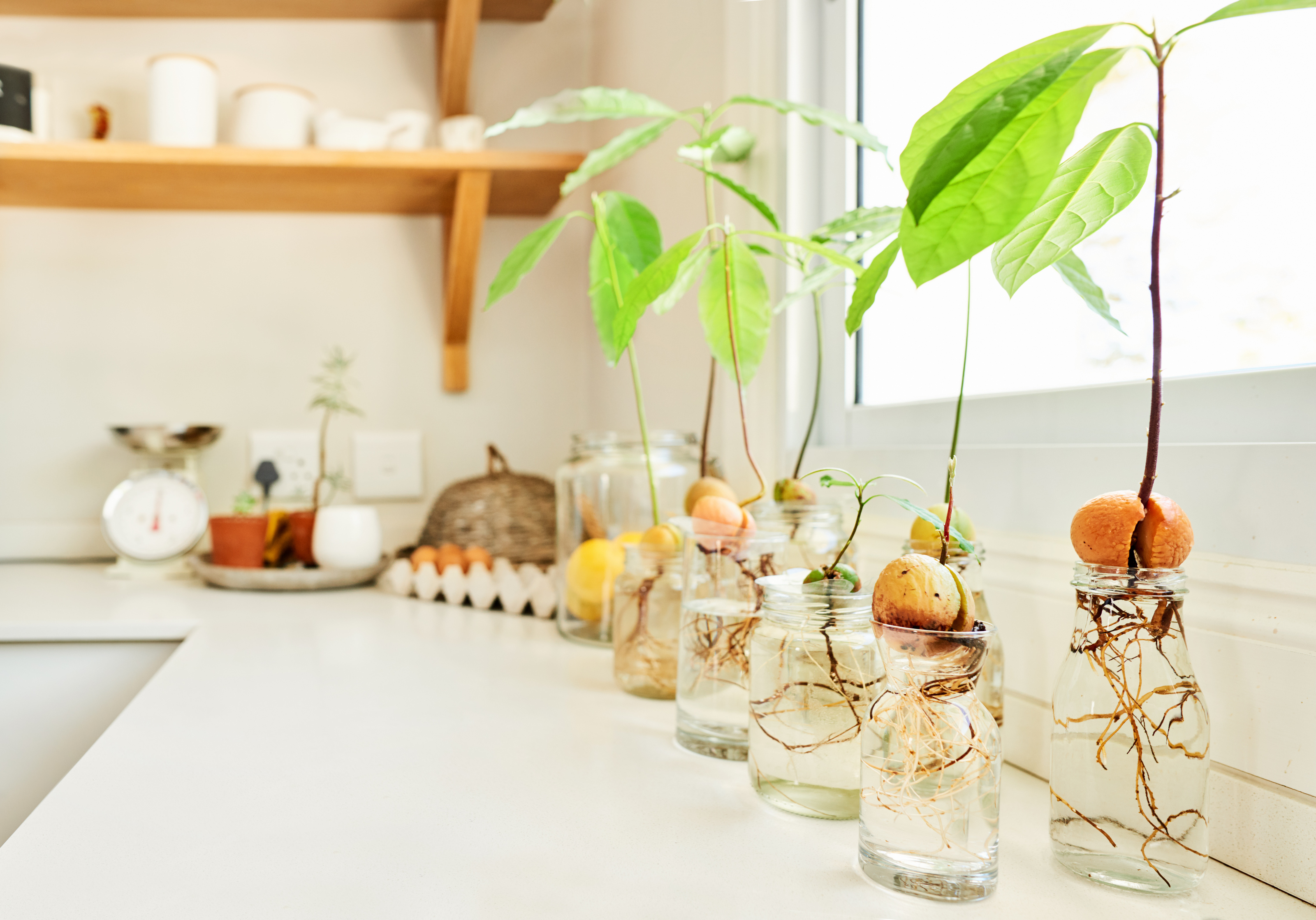
No matter the time of the year, it's pretty easy to source an avocado, but have you ever stopped to consider growing your own? Even if you're not particularly green-fingered, you can create a beautiful waxy-leaved avocado sapling that eventually produces your own fruit. The good news is that it's a fun indoor gardening experiment that makes the perfect houseplant for beginners, and it's easy. The bad news: It's a lengthy process. 'Growing avocados from pits requires patience,' says Zahid Adnan, professional gardener at The Plant Bible. 'It may take several years before the tree produces fruit, so it's essential to be persistent and enjoy the process.'
Next time you go to use avocado in your food preparation, save the avocado pit and experiment with growing your own avocado tree indoors. ‘Expanding your gardening skills to cultivate an avocado tree can reward you with years of lovely green foliage, shady canopy, and freshly harvested creamy fruits to enjoy,’ says Lina Cowley, master botanist and senior editor at Trimmed Roots. To inspire you, here are propagation techniques, planting conditions, and care tips for nurturing a successful backyard avocado tree from sapling to fruit production.
1. Pick the best variety
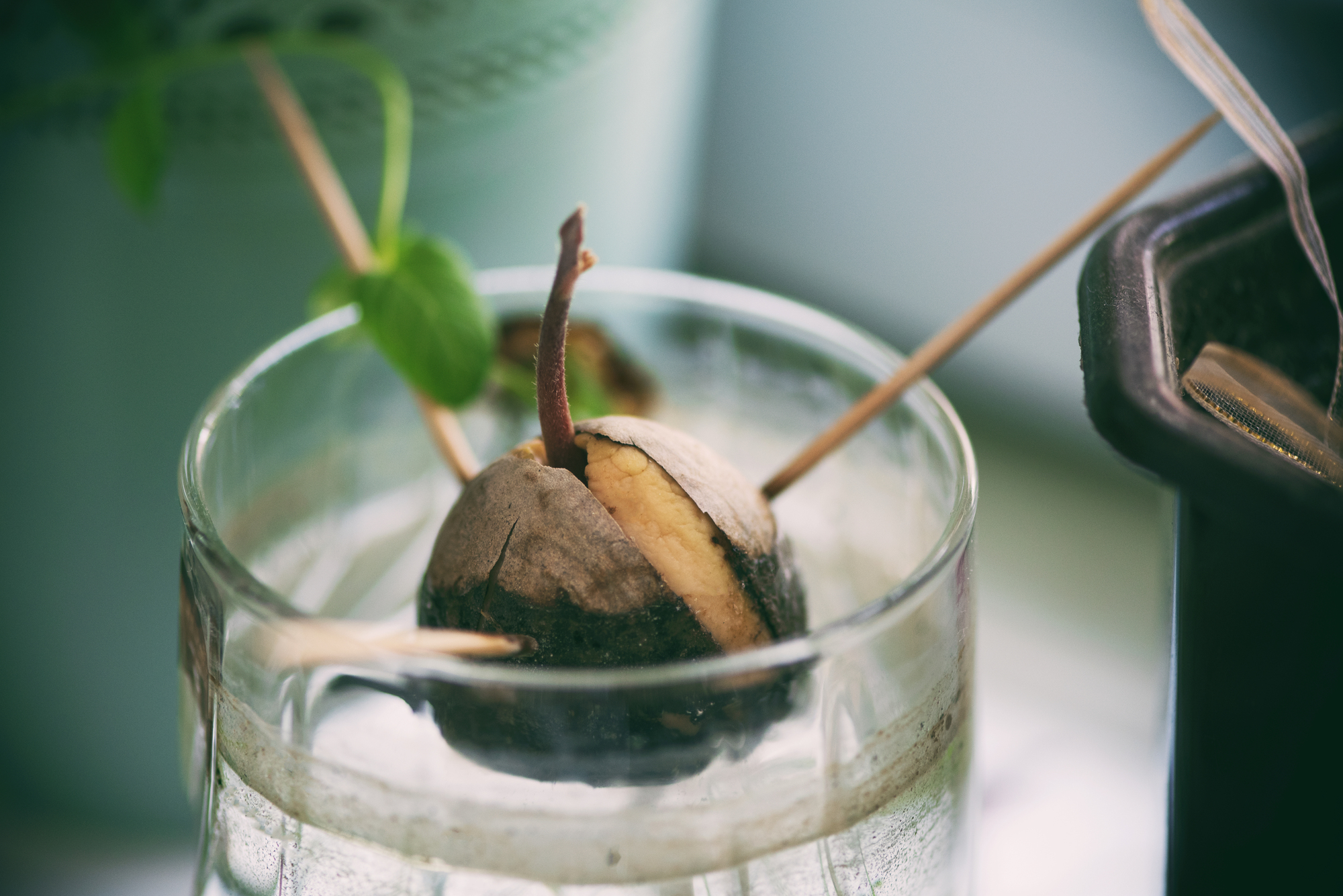
First up, give your avocado a headstart by making sure you pick the best variety. 'Review over 1,000 types to choose an avocado cultivar fit for your region's climate and growing zone temperatures,' says Lina Cowley from Trimmed Roots. 'Varieties like chilly-hardy Bacon and Fuerte take cooler winter weather in stride, while sun-lovers such as Hass, Zutano, and Reed relish summer heat.' Check with local nurseries to pinpoint adaptive types for your conditions.
'Different avocado varieties have distinct flavors and growing requirements,' adds professional gardener Zahid Adnan of The Plant Bible. 'Hass avocados are popular for home cultivation due to their rich taste and adaptability,'
Once you have your chosen avocado (and have eaten the creamy contents), make sure you have the perfect pit. Your pit should look fresh and healthy and is most likely going to propagate if taken from a mature fruit. 'Rinse off any flesh residue, but be cautious not to make the houseplant propagation mistake by forgetting to remove the brown skin covering the seed,' says Zahid.
2. How to germinate from pit
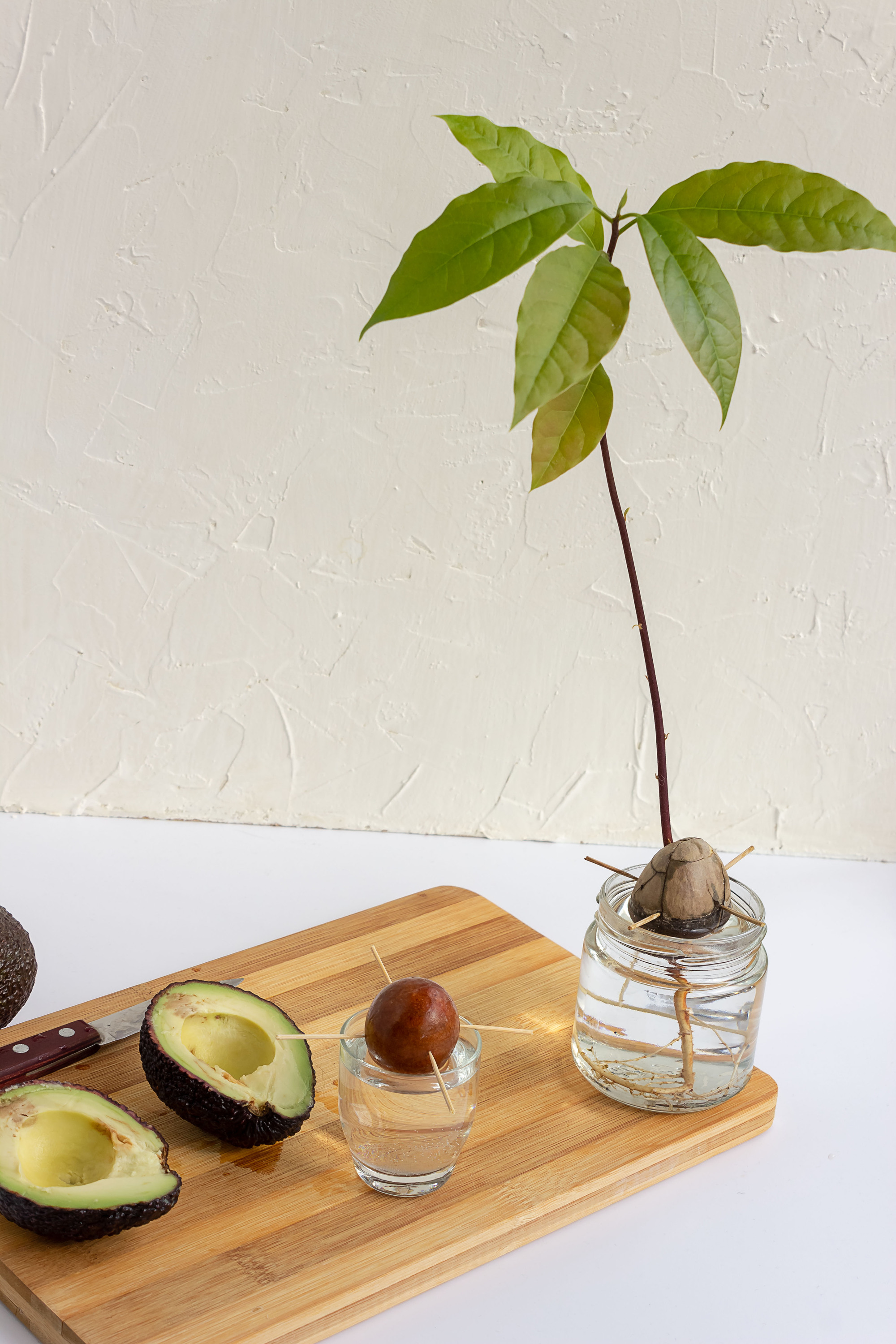
Now comes to the fun bit - propagating your pit, which has become a real houseplant trend over the last year. To grow from your chosen pit, you'll need a few toothpicks to hand. This is because avocados can be grown from seeds using toothpicks and a glass of water or by planting them directly in the soil. 'The water method allows you to witness the seed's root and shoot development before transplanting,' says Zahid.
To do this, firstly press three to four toothpicks into the tapered bottom tip, angled slightly down and evenly spaced around the edge.
Balance the pit half submerged in a water-filled jar, with toothpick tips pointing downwards. Make sure you keep replenishing the water jar on a bright, warm windowsill, and keep it out of direct sunlight. In two to eight weeks, roots and stems should begin to emerge. Transplant your young tree into the soil when it is six to seven inches tall.
3. Prep your planting site

The best houseplants will have perfect soil conditions, so get ahead of the game by getting your soil ready. Weeks before planting, mix the earth with compost or manure to increase drainage and nutrition levels. 'Test soil acidity at the neutral 6.0-6.5 pH range,' says Lina. This might sound complicated but fear not. To do this at home, place two tablespoons of soil in a bowl and add a little moisture with water.
Add one-half cup of baking soda and pay close attention to see whether the mixture fizzes or not. If it does, then the soil is acidic. If you add one-half cup vinegar to two tablespoons of soil and the mixture fizzes, it is alkaline. You know if your soil has a neutral pH if both experiments don't produce a reaction.
4. Monitor conditions
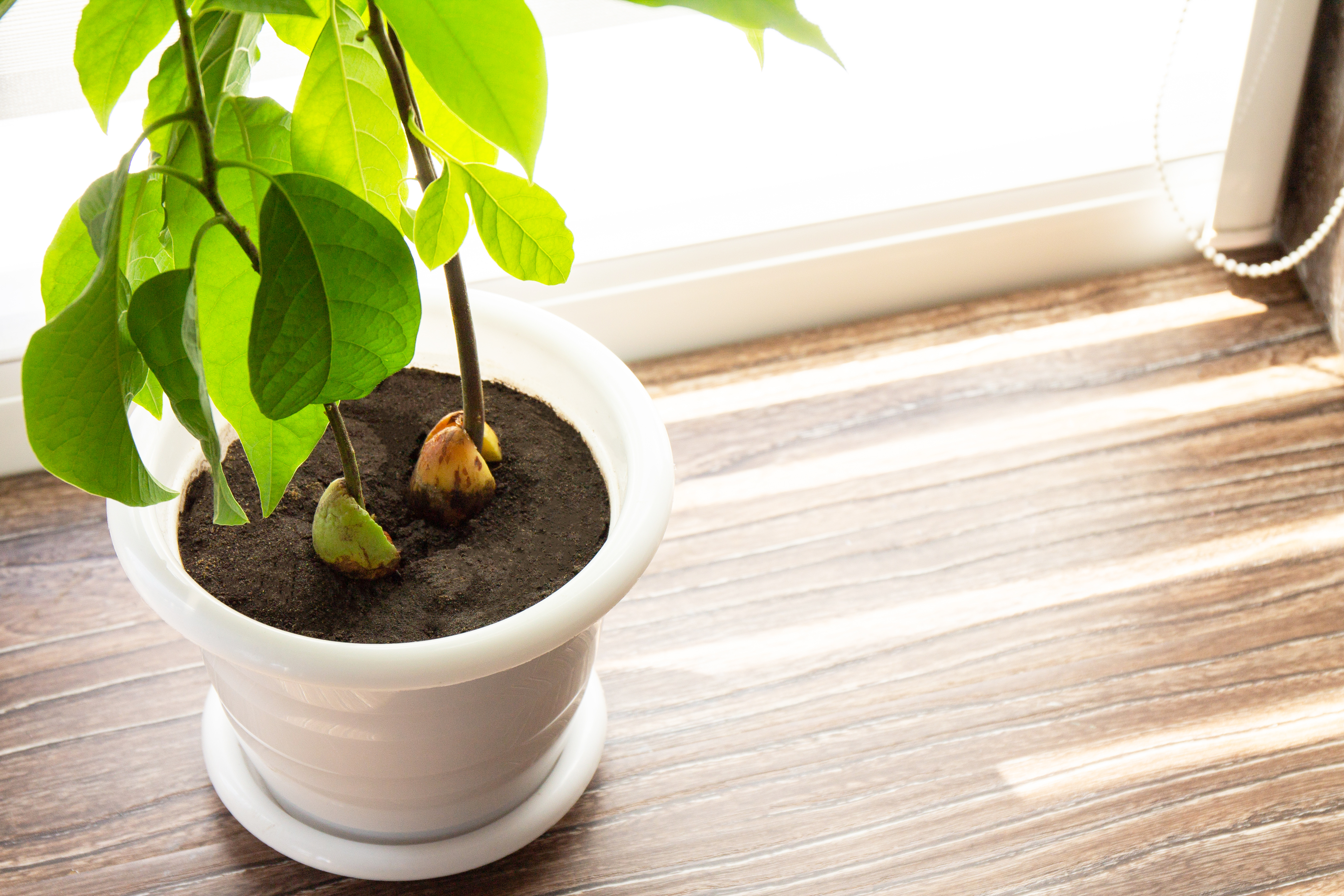
Once comfortably rooted, avocado trees thrive best in certain conditions. Consider how often you should water your houseplant. 'Avocados thrive in well-draining soil,' adds Zahid. 'Ensure the soil is consistently moist but not waterlogged.'
Remember to plant the seed in a location with good sunlight exposure too. 'Your plant will need six to eight daily hours of direct sunlight, with average temperatures between 75-85°F,' says Lina. 'Keep the temperature around 45°F+ at night and regularly avoid directly to the roots.'
When you start noticing that your plant has begun to really sprout leaves, make sure to keep trimming upper branches by one-third to limit height while clearing internal shoots and dead zones. This shapes a welcoming canopy for proper airflow and sunlight distribution. 'Pinching back new sprouts also encourages bushy form too,' adds Lina.
Later down the line, perhaps a year into monitoring your plant, you will want to move it outside. Moving it outside any earlier is fine as long as the temperature is 45°F or warmer. 'Shelter outdoor trees from wind damage too,' says Lina. Repot container plants or move indoors overnight if the weather turns extreme. 'Frost barriers also protect established specimens from cold snaps,' says Lina.
5. Harvesting the fruits of your labor
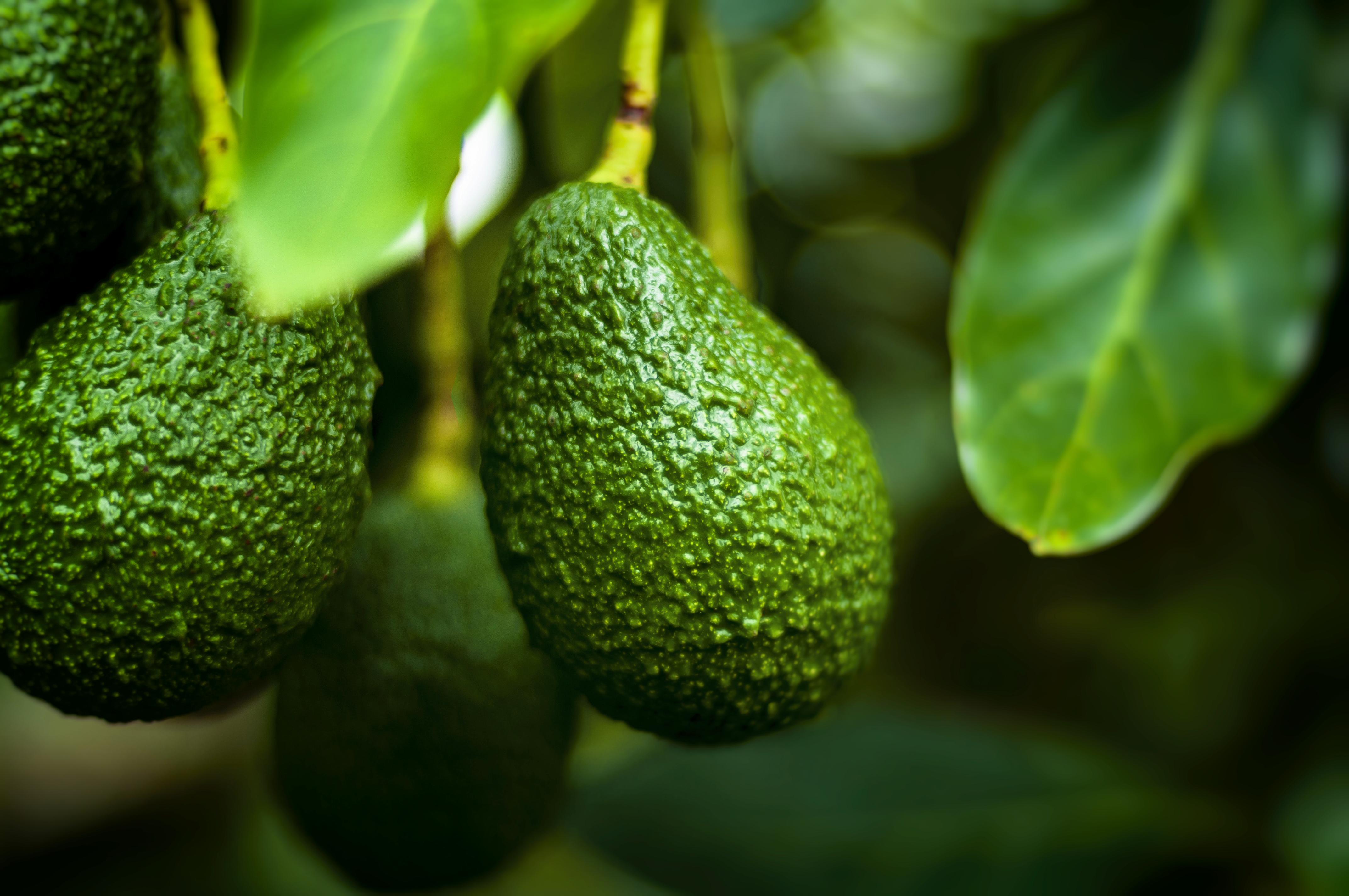
It will be time to enjoy the first mature fruits within three to four years of propagating. Ripe avocados twist free from branches with a slight softness perfect for immediate eating or refrigerated storage.
'With ongoing attentive care across seasons, homegrown avocado trees reward gardeners’ dedication with an abundance of lush shade, visual delight, and, of course, baskets of velvety green superfood fruits,' says Lina.
Prune the young tree to encourage a strong and bushy shape. This helps in overall growth and fruit production. Additionally, staking may be necessary to support the tree in its early years.







